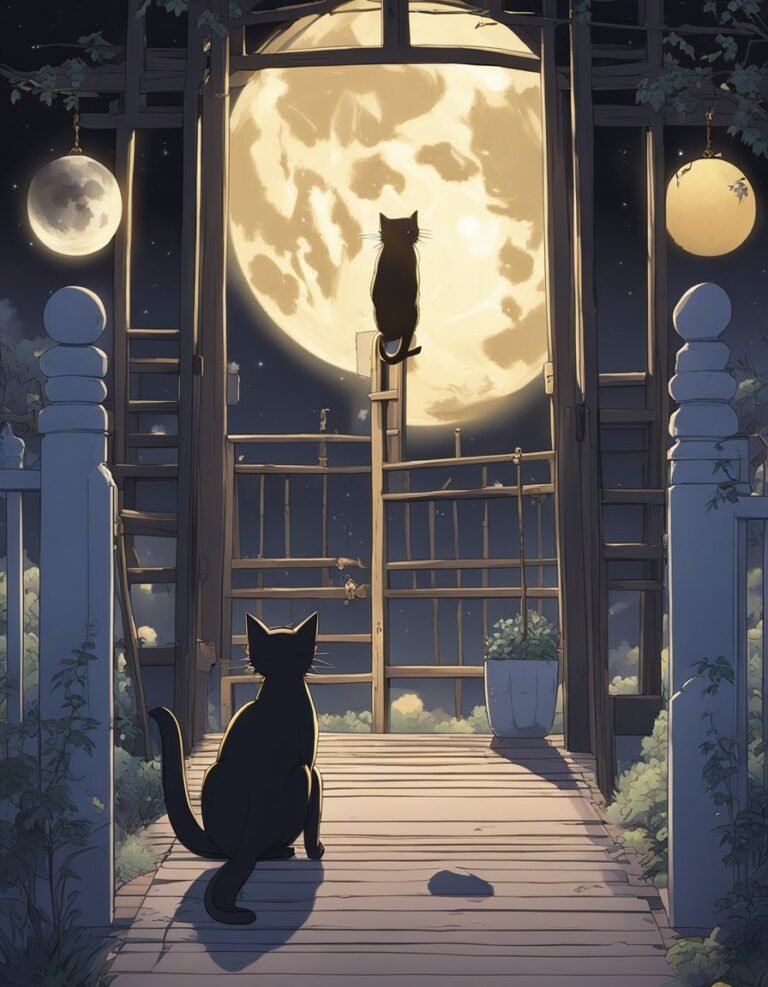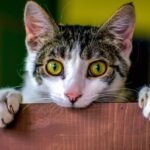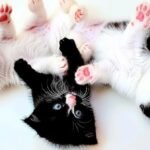Cat Superstitions: Myths vs. Facts About Our Feline Friends

Cats have always been enveloped in mystery, and with that mystery comes a tapestry of superstitions that have weaved their way into cultures around the globe.
Whether it’s a black cat crossing your path or the belief that cats have nine lives, these furry creatures have been at the center of myths and folklore for ages.
You’ve probably heard a few of these tales yourself, maybe even tossed a bit of salt over your shoulder if a kitty walked by and gave you the stink eye.

These superstitions are so ingrained in our society that they can influence perceptions and treatment of cats, especially those with certain coat colors.
The reputation of black cats, for instance, oscillates between being bearers of bad luck and symbols of good fortune, depending on where you are in the world.
It’s interesting to see how these beliefs vary and how some have held strong, despite a lack of any scientific backing.
Disentangling the truths from the fables about cat superstitions might leave you surprised at what you discover.
After all, not every purr is a sign of contentment, and sometimes, a cat’s apparent curiosity is more about caution than bravado.
So curl up and get comfy as we explore these feline myths; who knows, you might find some of them to be purr…plexing, to say the least.
Historical and Cultural Superstitions of Cats
Cats have been at the center of many superstitions throughout history, surrounded by a mix of fear, reverence, and mystery that varies by culture.
Ancient Beliefs and Cat Worship
In Ancient Egypt, cats were held in high esteem, believed to have divine connections.
They were associated with the goddess Bastet, goddess of home, fertility, and childbirth, often depicted with a cat’s head.
As sacred animals, cats were even mummified and buried with honors.
If you harmed a cat, even accidentally, it could mean severe punishment.
Cats in Folklore and Mythology
Cats, particularly black cats, have played a significant role in folklore and mythology across the world.
They’ve been seen as symbols of good luck and bad luck.
European folklore is rife with tales of cats having nine lives and their association with witches and witchcraft, while in some cultures encountering a white cat was a sign of impending good fortune.
Cats were also believed to offer protection against evil spirits in some traditions.
Black Cats and Their Special Legacy
The legacy of black cats in particular is a study in contrasts.
In medieval Europe, they often became targets during witch hunts, as they were thought to be witches’ familiars.
This belief persisted into Europe where black cats were associated with bad luck.
Conversely, some regard black cats as bringers of good luck, and finding one can be viewed as a good omen.
Debunking Common Cat Myths
Cats are fascinating creatures, shrouded in mystery and surrounded by lore.
Let’s clear up some of the most persistent myths about these enigmatic animals.
The Nine Lives Fallacy
Contrary to the age-old myth of cats having nine lives, each cat only has one life, much like any other living creature.
The idea of multiple lives likely stems from their remarkable righting reflex, allowing them to often land safely on their feet after a fall.
This ability gives an impression of miraculous survival, but it’s their balance and flexibility— not a stockpile of lives—that increases their safety.
Cat Behaviors and Misinterpretations
Cats may display certain behaviors that seem peculiar to us but are actually normal.
A sneezing cat might cause superstition about it predicting a future event, but in reality, it’s probably just reacting to dust.
And while some believe that a cat purring is a surefire sign of happiness, it can also be a mechanism for self-soothing during stress or pain.
Cats can be lactose intolerant, so offering a bowl of milk for comfort is misguided—their main drink should be water.
Good and Bad Luck Associations
The concept of black cats being unlucky or predictors of misfortune is purely superstition without any basis in fact.
In some cultures like Japan, they are even considered to bring good luck.
On the other hand, subscribing to superstitions can lead to real-life consequences for these animals, often influencing their adoption rates negatively.
Luck, as it pertains to cats, is nothing but a myth that’s been debunked, and it should never affect how we treat them.






